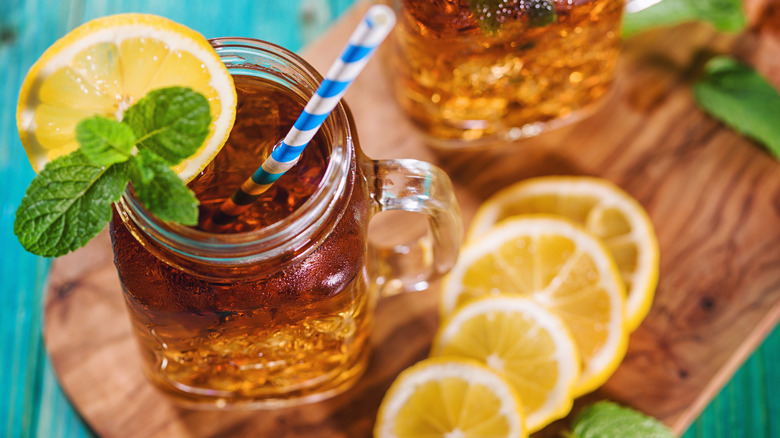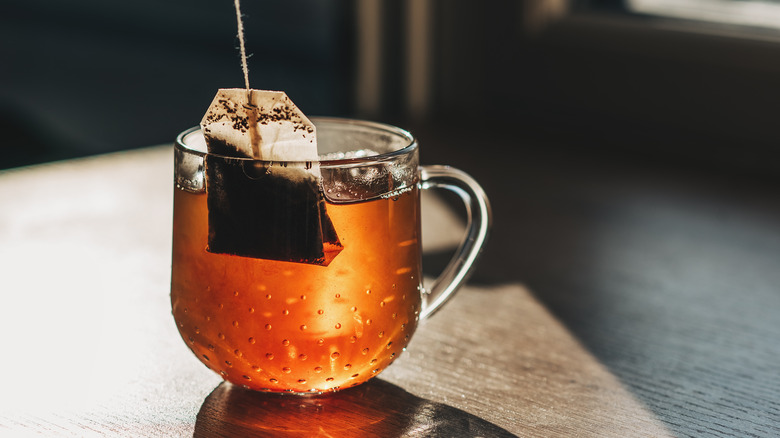Why The Hot Brewing Method Is Crucial For Iced Tea Cocktails
Few drinks signal the seasonal shift to summer as much as tea. Once the daily temperature crosses 75 degrees Fahrenheit, that daily mug of steaming earl grey quickly transforms into a tall, chilled glass under bobbing ice cubes and lemon slices. Tasting and appreciating the dynamic combination of tea and spirits starts with preparing the tea properly. That's because the flavor and richness of the tea come as much from how you brew it as the quality and type of tea leaves, be they white, green, black or other. In other words, with tea, you need to coax out the full flavor, and that means brewing it hot and chilling afterwards, rather than simply dumping a few bags into a pitcher of cold water. That's because hot water reacts with the dried tea leaves or powder in a more robust way than cold water, drawing out the flavor, color, and body better — whether on its own or for a tea-infused cocktail.
Whether sweetened or not, the hot-weather classic packs a remarkable power to refresh the body, mind, and spirit thanks to its hydrating water, dose of antioxidants, boost of caffeine, and subtle flavor that doesn't upper-cut the tastebuds as much as other summertime drinks, be it soda, beer, or fruit drinks. Given the already firm foundation, it's no wonder that alcohol often enters the iced tea mix, too, crafting cool cocktails that marry iced tea with bourbon, vodka, and more.
Water temperature versus tea leaves
Why brewing in hot water is so important to tea comes down to chemistry. A high temperature increases the kinetic activity of the water molecules and collisions with the tea leaves This, in turn, raises the rate of solubility and release of the chemicals and compounds in tea leaves that create the flavor — polyphenols, flavonoids, catechins, tannins, and antioxidants. This becomes even more important for black tea — the tea most often used in iced tea — as the fermentation and oxidation that makes it black need hotter water to bring out the flavors than more delicate green and white teas. While cold water steeping can still work, it will take much longer and perhaps not extract all the flavor hot water can.
This pays direct dividends in tea cocktails like a whiskey-infused peach tea, vodka-swizzled tea martini, or multi-spirit Long Island iced tea. With multiple flavor-rich ingredients — including syrups, sugar, fruit, and various mixers on top of the booze — the tea needs to flex as much muscle as possible to stand up as an equal partner. Otherwise, it may simply get buried by the rest, negating the entire purpose of it being there. Brewing in hot water rather than cold helps elevate the tea's strength and punch, especially if following best practices of temperature and steeping times for the various tea varieties, as well as other tips to brew the perfect cup of tea.

